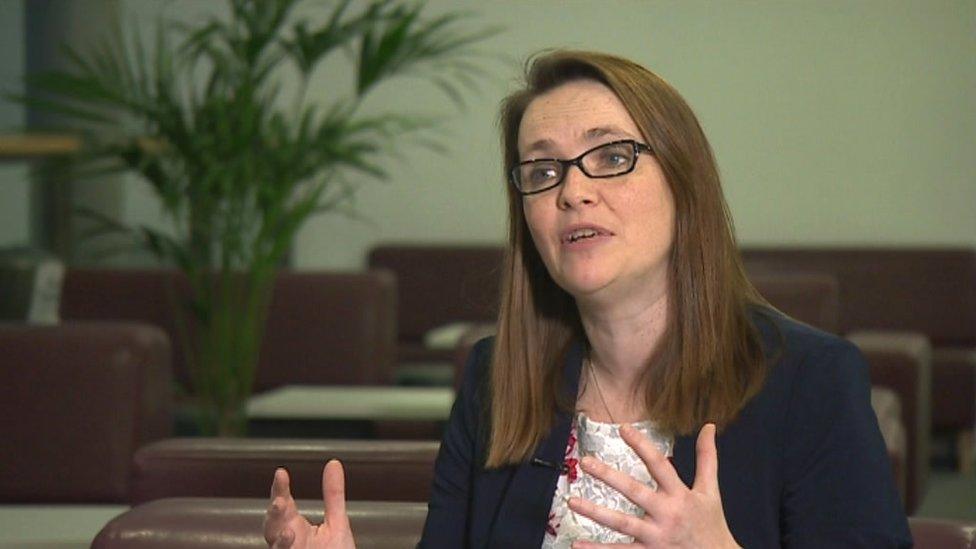Welsh Assembly election: Lib Dems make an impact
- Published

Kirsty Williams will fight to keep a Lib Dem presence in the Senedd
The Liberal Democrat contingent in the assembly has been remarkably consistent.
The party won six seats in each of the first three elections and avoided the electoral collapse some opinion polls suggested to retain five in 2011.
Its assembly group has had only two leaders in that time, with Mike (now Lord) German at the helm from 1999 until Kirsty Williams became the first woman to be elected as Welsh leader of a party, external in 2008.
The Lib Dems had their time in the sun during a coalition government with Labour from 2000 to 2003. They published a breakdown of their achievements, external listing, among others, £200m for school buildings repair, the freezing of prescription charges, and a farming and rural support package of £60m.
Mr German's time as deputy first minister was blighted by an 18-month police investigation into alleged expenses irregularities over his use of a corporate credit card while running the Welsh Joint Education Committee's European Unit - his last job before entering full-time politics. The Crown Prosecution Service took no action.
No rainbow
A Liberal Democrat special conference in May 2007 voted against forming a "rainbow" coalition with Plaid Cymru and the Conservatives, a personal setback for Mr German, paving the way for the Labour-Plaid Cymru "One Wales" coalition government.
The Liberal Democrats have certainly added colour to the assembly, if only because of Peter Black's vast array of ties.
Eleanor Burnham, AM for the north Wales region for a decade, was a somewhat boisterous presence in the chamber, but had to apologise , externalfor referring to the Japanese as "Japs" in a debate.
A row broke out in Cardiff Bay in 2002 after Montgomeryshire AM Mick Bates appeared at a plenary session dressed as Father Christmas to raise cash for charity. The presiding officer said he would not call members to address the chamber if they were "abnormally dressed".
A curious incident in 2006 has become known as "Mick's finger, external". While voting on the day's motions, Mr Bates raised his middle finger to the laughter of other AMs. He denied that his gesture was aimed at the Presiding Officer Lord Elis-Thomas, adding "I was showing Rhodri Glyn Thomas which finger he should use to operate the assembly's modern push button voting system."
And there was a high-profile incident in 2010 when Mr Bates was convicted of punching a paramedic during a drunken night out in Cardiff following a sitting in the Senedd.
Budget deals
The Liberal Democrats have often secured deals to get government budgets passed.
In 2011 they agreed a deal with Labour to include an extra £20m to spend on the education of the poorest pupils, a theme they repeated in 2013 when they secured £35m to expand the party's flagship policy, the pupil deprivation grant.
In 2014, they reached a deal which they said was worth £223m over two years, again including extra spending on education and also the completion of a link road in east Cardiff and a pledge not to build the new M4 relief road before the assembly election.
The Liberal Democrats have always been the smallest group in the assembly but they consistently say they have a big impact.
The party's resilience is set to be severely tested in the May election.
- Published7 February 2016
